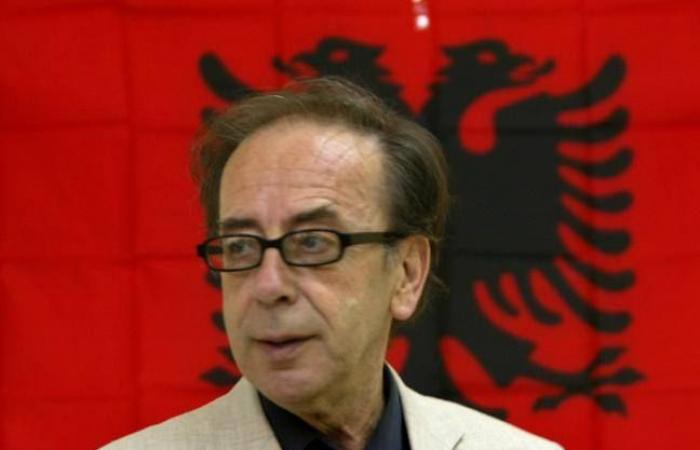Even though he came from the most closed, tyrannized and poorest country in Europe, the Albanian writer and poet Ismail Kadaré, who passed away at the age of 88, he had instilled in his works a breath of universal scope, which had established his worldwide fame, with translations into around forty languages.
The brutal communist regime of dictator Enver Hoxha had tolerated him, although subjecting him to various harassments. In 1990 he then moved to France and had obtained important recognition on the international level. Kadaré was undoubtedly a leading figure in European literature. The evocative power of his writing and the denunciation of totalitarian oppression had led the jurors to award him the Man Booker Prize in 2005, the Prince of Asturias Prize in 2009 and the Nonino Prize in 2018. He had also been selected several times among the Nobel candidates.
Born in Gjirokastër — the same hometown as Hoxha — on 28 January 1936, Kadaré he graduated in History and Philology, then he devoted himself to poetry. He had spent two years studying literature at the Gorky Institute in Moscow, but he left when the Kremlin broke with Albania, which had sided with China, in the early 1960s, in the dispute that divided the international communist movement. Kadaré’s first novel dates back to 1963, The general of the dead armyfrom which a film directed by Luciano Tovoli was made with Marcello Mastroianni, Michel Piccoli and a very young Sergio Castellitto.
Received negatively by the authorities of the Balkan country, whose brutal state atheism was annoyed by the fact that a priest was “described as a nice man”, the book tells the story of an Italian general and priest who travel to Albania to recover the bodies of soldiers who fell during the Second World War. It was translated in Italy only in 1982 by Longanesi, while in France it had already achieved considerable success. However, the year before, another novel by Kadaré had been published in Italy, also by Longanesi, The rain drums (1970), set at the time of the wars against the Turkish rulers, which had been favorably received in the “Corriere della Sera” by Giorgio Manganelli, who had defined it as “a naturally archaic book”, appreciating its the “accurate narration of war tortures, of horrors without tears, of wise rages”.
Meanwhile, Kadaré’s problems with the regime continued. Some zealous bureaucrats were even surprised that Hoxha allowed his books to be published abroad thanks to the prestige the writer had acquired on the international scene. One day, Kadaré was summoned by the dictator himself, who in a long rant complained that the author always wrote “sad things” and urged him to extol the alleged successes of the “heroic Albanian party”. Kadaré, however, had continued on his path and at a certain point, amid censorship and intimidation, he found himself having to draw up a humiliating self-criticismin which he admitted to having “written things contrary to the good of the people”, behaving like “an enemy of communism”. A price paid to the regime’s rhetoric to avoid suffering worse troubles.
This was not enough, however, to avoid the censorship his book suffered in 1981. The Palace of Dreams (Longanesi, 1991). It was quite clear to any reader that the building in which, in the novel, the dreams of all the subjects of the Ottoman Empire are gathered recalled the police and bureaucratic system by which the author’s homeland was oppressed. In many ways, as Claudio Magris acutely observed, some of Kadaré’s works evoked the dystopia described by George Orwell in 1984, with the difference that the Albanian writer’s narration came from within the totalitarian mechanism because it was the fruit of direct experience. “Kadaré — wrote Magris in this regard — is a bit as if he had really lived under the gaze of Big Brother.”
In the 1980s, after Hoxha’s death, the Albanian communist regime had begun to show its rope and Kadaré had hoped for liberalization. In any case he had settled in France in 1986, where he had been able to stay for some time thanks to his international prestige, three manuscripts of works openly critical of his country’s establishment. Then Kadaré had corresponded with Hoxha’s successor, Ramiz Alia, to understand if he was animated by sincere reform intentions and had concluded that he was not like that at all. “The Albanian state – the writer would later declare in a radio interview – promised everything without looking for effective solutions, it continually deceived the citizens, but in reality no one had the intention of doing anything”.
Thus Kadaré, nauseated by that “total hypocrisy”, in 1990, shortly before the fall of the regime, left his country for France, where he was able to more freely express his aversion to totalitarianism in works of strong impact such as Agamemnon’s daughter (Longanesi, 2007). Another recurring theme in Kadaré’s works is the so-called Kanun, an unwritten code of honor but rigidly respected, in part even today, by the Albanian populations of the mountainous areas: an archaic and often cruel law that plays a vital role in novels such as Who brought Doruntina back? (Longanesi, 1989) e Broken April (Guanda, 1993; Longanesi 2008).
A great admirer of Alighieri, to whom he dedicated the important essay Dante or the inevitable (Fandango, 2008), Kadaré remembered how the Divine Comedy had received great attention in the literary circles of his country, prostrated by Hoxha’s despotism. In those years, he wrote, “the hell of Albanian reality” had induced scholars “to translate in the most integral, moving, pious way the Hell described by the Poet”.



